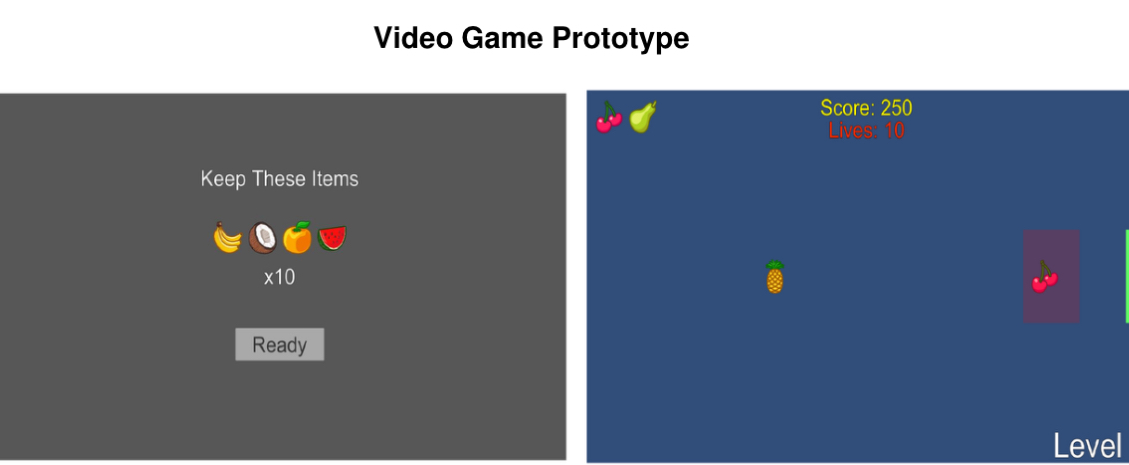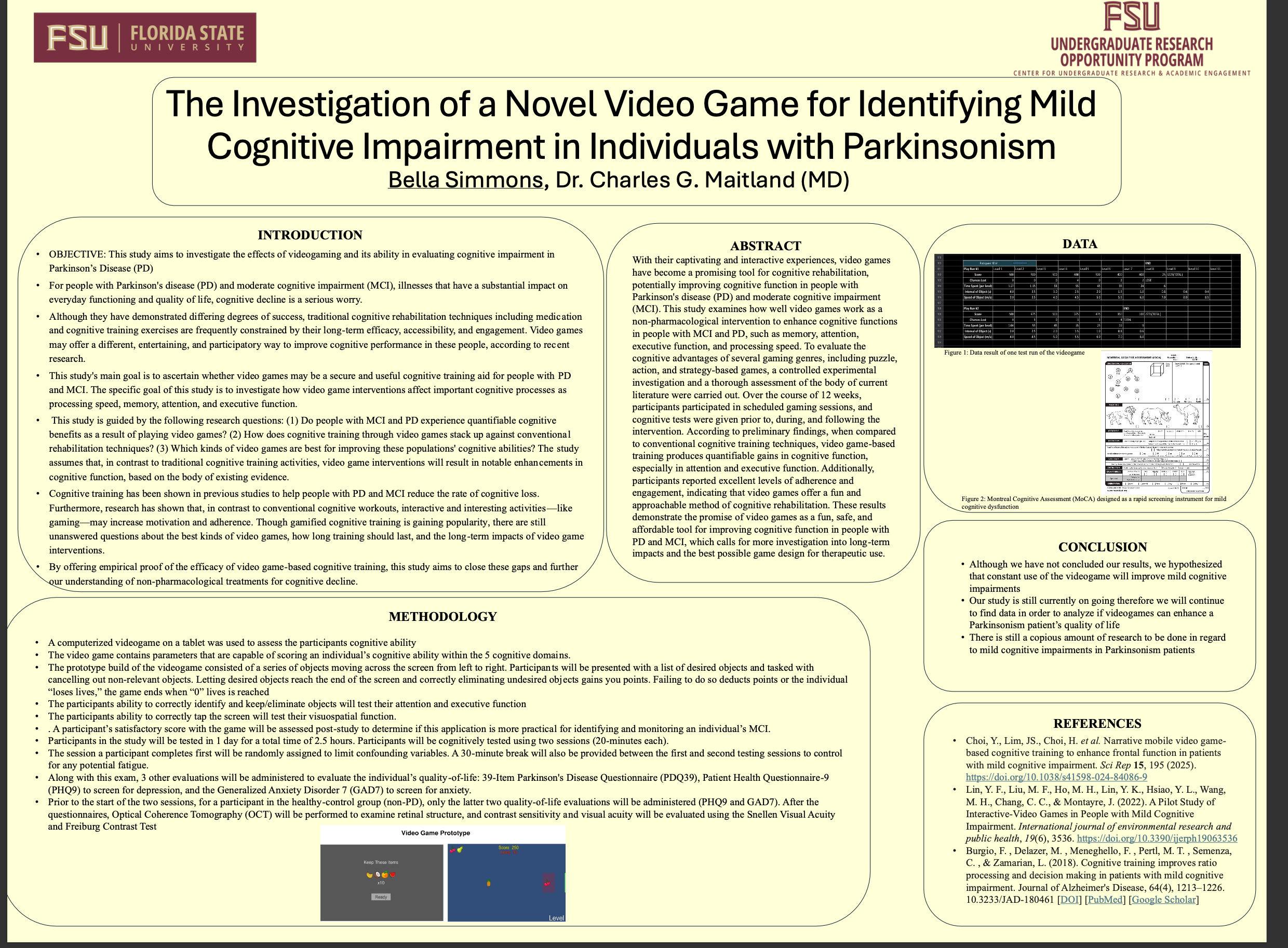Research Symposium
25th annual Undergraduate Research Symposium, April 1, 2025
Bella Simmons Poster Session 2: 10:45 am - 11:45 am/ Poster #61

BIO
Hi! My name is Bella Simmons, I am from Tampa, FL. Currently I am a sophomore, studying biological sciences at FSU. In my free time I work at a Balance Disorders and Neurology Clinic, here in Tallahassee, where we preformed our research out of.
The Investigation of a Novel Video Game for Identifying Mild Cognitive Impairment in Individuals with Parkinsonism
Authors: Bella Simmons, Dr. Charles G. MaitlandStudent Major: Biological Sciences
Mentor: Dr. Charles G. Maitland
Mentor's Department: Neuroscience Mentor's College: College of Medicine Co-Presenters:
Abstract
With their captivating and interactive experiences, video games have become a promising tool for identifying mild cognitive impairments, potentially improving cognitive function in people with Parkinson's disease (PD) and moderate cognitive impairment (MCI). This study examines how well video games work as a non-pharmacological intervention to identify cognitive impairments in people with PD, such as memory, attention, executive function, and processing speed. To evaluate the cognitive advantages of several gaming genres, including puzzle, action, and strategy-based games, a controlled experimental investigation and a thorough assessment of the body of current literature were carried out. Over the course of 12 weeks, participants participated in scheduled gaming sessions, and cognitive tests were given prior to, during, and following the intervention. According to preliminary findings, when compared to conventional cognitive training techniques, video game-based training produces quantifiable gains in identifying cognitive function impairments, especially in attention and executive function. Additionally, participants reported excellent levels of adherence and engagement, indicating that video games offer a fun and approachable method of cognition identification. These results demonstrate the promise of video games as a fun, safe, and affordable tool for improving the way we test for cognitive function in people with PD and MCI, which calls for more investigation into long-term impacts and the best possible game design for identification use.
Keywords: Parkinsons, MCI, Videogames


